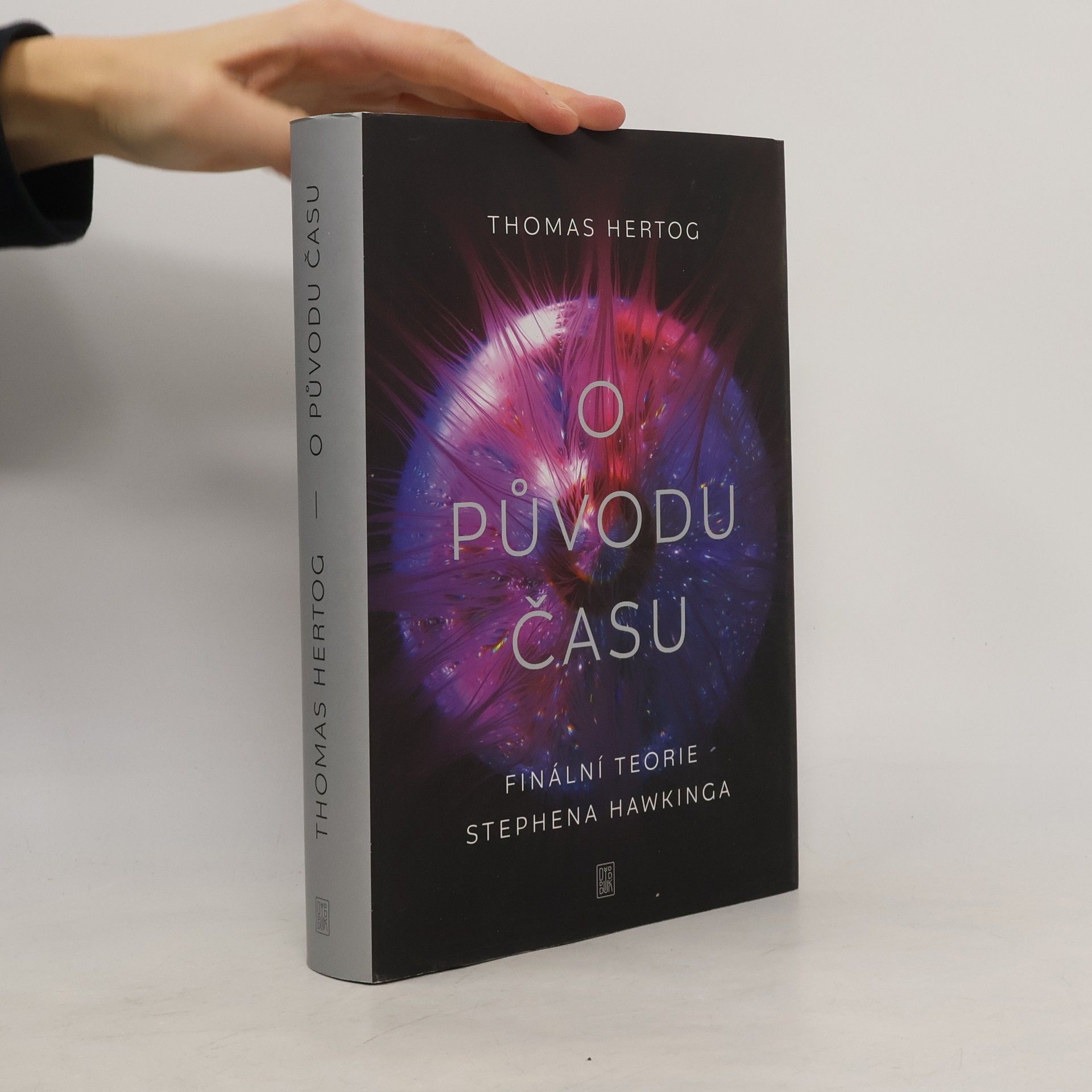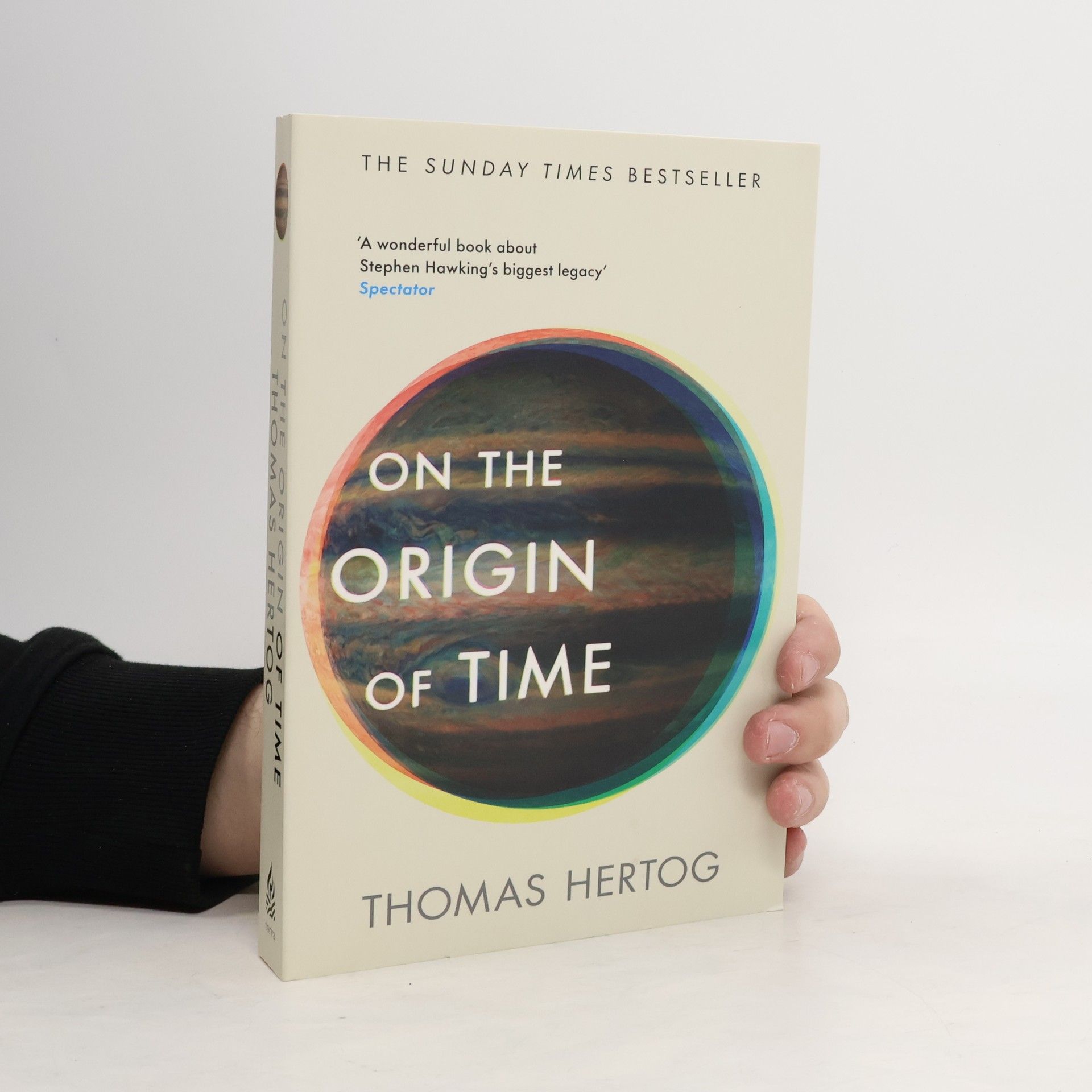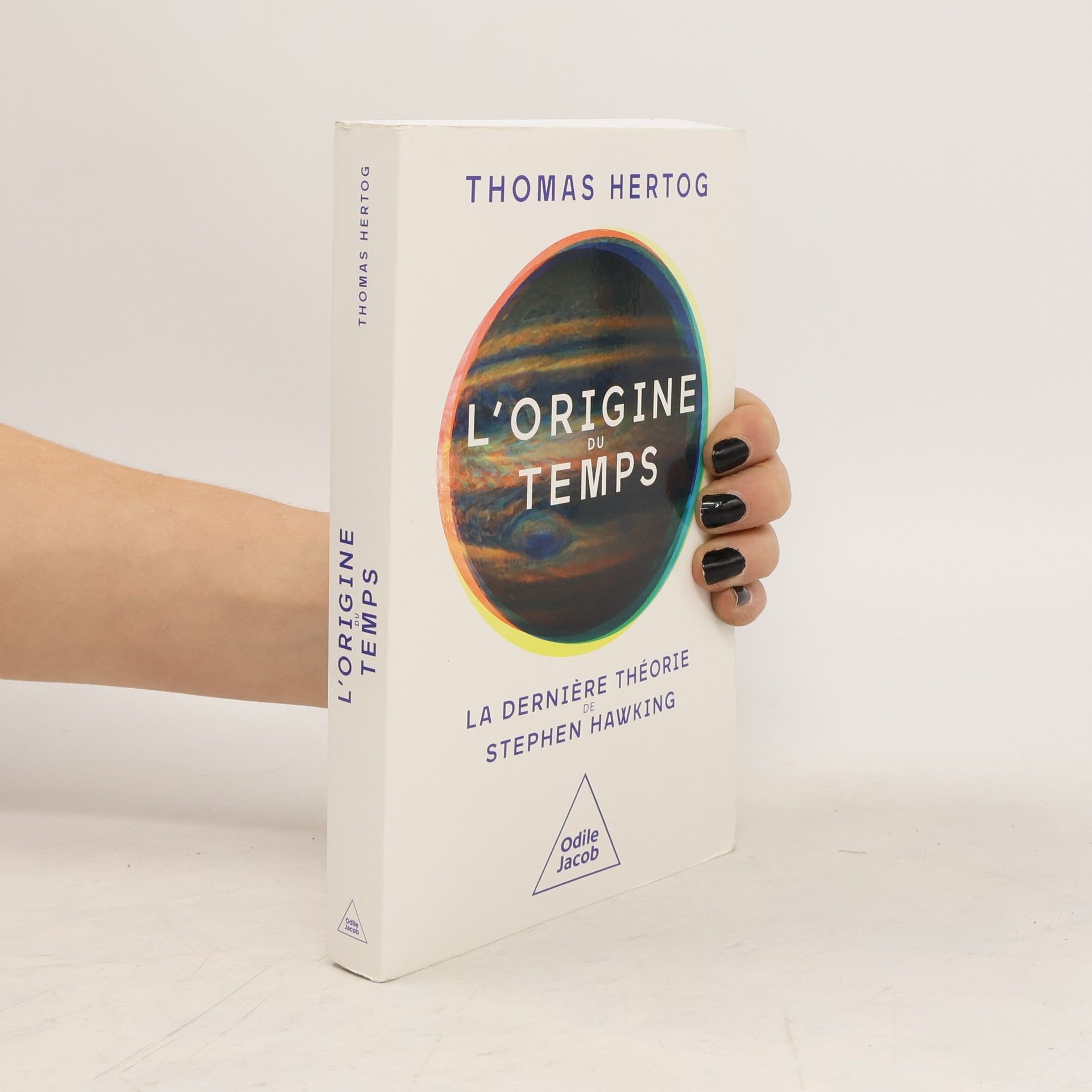"Dans ce livre, Thomas Hertog présente la dernière théorie de Stephen Hawking, dont il a été le plus proche ami et collaborateur : une nouvelle perspective profondément darwinienne sur les origines de l’Univers. Stephen Hawking et Thomas Hertog ont travaillé côte à côte pendant vingt ans sur une nouvelle théorie quantique du cosmos.Poussant leur exploration du Big Bang au plus près des origines ultimes du monde, ils ont identifié un niveau d’évolution plus profond dans lequel les lois physiques elles-mêmes se transforment et se simplifient jusqu’à ce que les particules, les forces et le temps lui-même s’évanouissent. Cette découverte conduit à une idée révolutionnaire : les lois de la physique ne sont pas gravées dans la pierre comme des commandements divins, mais elles naissent et évoluent en même temps que l’univers qu’elles gouvernent, à mesure que celui-ci prend forme. Ce pourrait bien être le plus grand héritage que nous lègue Stephen Hawking. Un bouleversement dans notre façon de penser notre place dans l’ordre du cosmos. Un livre enthousiasmant, profondément neuf, clair et accessible."--Quatrième de couverture.
Thomas Hertog Livres





This superbly written book offers insight into Stephen Hawking's final thoughts on the universe, as shared by his closest collaborator, Thomas Hertog. Throughout his extraordinary life, Hawking sought to answer how the universe could create conditions so perfectly suitable for life. His early work on the big bang faced challenges when mathematical predictions suggested a multiverse, filled with countless bizarre universes. For twenty years, Hawking and Hertog tackled this dilemma at Cambridge, developing a new theory that could explain the emergence of life. Delving into extreme quantum physics and cosmic holograms, they discovered a deeper level of evolution where the physical laws transform and simplify, leading to the fading of particles, forces, and even time. This groundbreaking insight revealed that the laws of physics are not fixed but evolve alongside the universe. As Hawking's life came to a close, the duo published their theory, presenting a radical Darwinian perspective on the universe's origins. This work offers a transformative vision of the universe's birth, reshaping our understanding of our place in the cosmos and potentially marking Hawking's greatest legacy.
A groundbreaking theory of the universe, developed over two decades by Stephen Hawking and Thomas Hertog, addresses the profound question of how the universe created conditions so conducive to life. Hawking's early explorations of the big bang led to a crisis when mathematics suggested a multiverse filled with bizarre realities, many inhospitable to life. At Cambridge, Hawking and Hertog collaborated intensively, uncovering a new quantum theory of the cosmos. Their research revealed a deeper evolutionary process where physical laws evolve and simplify, suggesting a time when perhaps there was no time. This culminated in a revolutionary idea: the laws of physics are not immutable but evolve alongside the universe they govern. The narrative explores extreme quantum physics, black holes, and the big bang, incorporating recent advances in string theory. As Hawking's life neared its end, the duo published a final theory that presented a radical Darwinian perspective on the universe's origins. Hertog's insights connect the universe's birth to our existence, fundamentally altering our understanding of our place in the cosmos and potentially cementing Hawking's legacy.
O původu času : finální teorie Stephena Hawkinga
- 336pages
- 12 heures de lecture
Nejbližší spolupracovník Stephena Hawkinga představuje v této knize jeho poslední myšlenky o vesmíru. Hawking se během svého života snažil odpovědět na otázku, jak mohly vzniknout podmínky příznivé pro život. Tato záhada vedla k jeho studiu vzniku vesmíru a velkého třesku, přičemž jeho raná práce narazila na problém multiverza, kde většina vesmírů byla příliš bizarní na to, aby v nich mohl existovat život. Spolu s Thomasem Hertogem Hawking dvacet let na katedře teoretické fyziky v Cambridgi vyvíjel novou teorii, která by mohla objasnit vznik života. Zkoumali kvantovou fyziku kosmických hologramů a objevili, že fyzikální zákony se vyvíjejí a zjednodušují, až mizí částice a čas. Tento objev vedl k myšlence, že fyzikální zákony nejsou neměnné, ale vznikají spolu s vesmírem. V posledních dnech Hawkinga dvojice zveřejnila teorii, která nabízí nový darwinistický pohled na vznik vesmíru. Kniha přináší novou vizi zrodu vesmíru a mění naše chápání místa v kosmickém řádu, což může být Hawkingův největší vědecký odkaz. Hertog přibližuje Hawkingovu filozofii, podle níž kvantové chování závisí na existenci pozorovatele, a tvrdí, že fyzika není nezávislá na lidském měření: „Vytváříme vesmír ve stejném smyslu, jako vesmír vytváří nás.“ Myšlenky Hawkinga a Hertoga mají potenciál převrátit tradiční pojetí příčinnosti a fyzikálních zákonů.
Das Buch, das Stephen Hawking nicht mehr schreiben konnte: Eine neue Theorie über die Entstehung unseres Universums. Stephen Hawking und der Kosmologe Thomas Hertog arbeiteten zwanzig Jahre lang Seite an Seite an einer neuen Theorie des Kosmos. Kurz vor Hawkings Tod veröffentlichten sie einen wissenschaftlichen Artikel, der die Welt der Physik in Staunen versetzte. Darin revidierten sie Hawkings »Eine kurze Geschichte der Zeit« und formulierten eine revolutionäre Idee: Die Gesetze der Physik sind nicht in Stein gemeißelt, sondern entwickeln sich gemeinsam mit dem Universum. Nötig ist nicht weniger als eine neue Philosophie der Physik. In »Der Ursprung der Zeit« erklärt Thomas Hertog Hawkings wissenschaftliches Vermächtnis und erzählt von der Arbeit und Freundschaft mit dem berühmten Physiker. Entstanden ist eine neue und faszinierende Theorie des Urknalls, der Zeit und der Entstehung unseres Universums. Gleichzeitig zeichnet das Buch ein persönliches Porträt des Ausnahmephysikers Stephen Hawking – geschrieben aus der Perspektive eines seiner engsten Mitarbeiter. »Ein wundervolles Buch über Stephen Hawkings ›größtes Vermächtnis‹.« Alexander Masters, The Spectator »Dieses Buch gibt einen Einblick in den Kopf eines außergewöhnlichen Menschen [...] und vermittelt einen Eindruck von dem Ausmaß und den Grenzen unseres derzeitigen Wissens über den Kosmos.« Sir Martin Rees